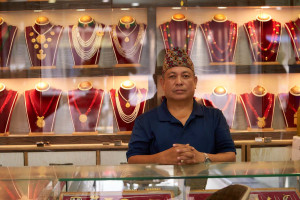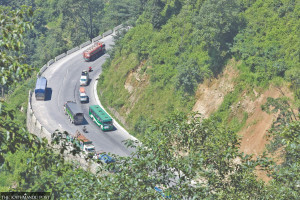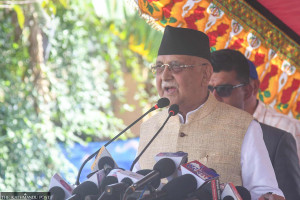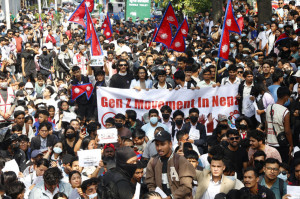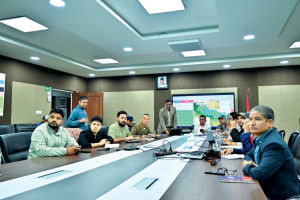Money
Remit Hydro to get licences of two projects
Department of Electricity Development (DoED) has decided to award development licences of two mid-sized run-of-the-river hydropower projects to Remit Hydro Limited (RHL), a wholly-owned subsidiary of Hydroelectricity Investment and Development Company Limited (HIDCL).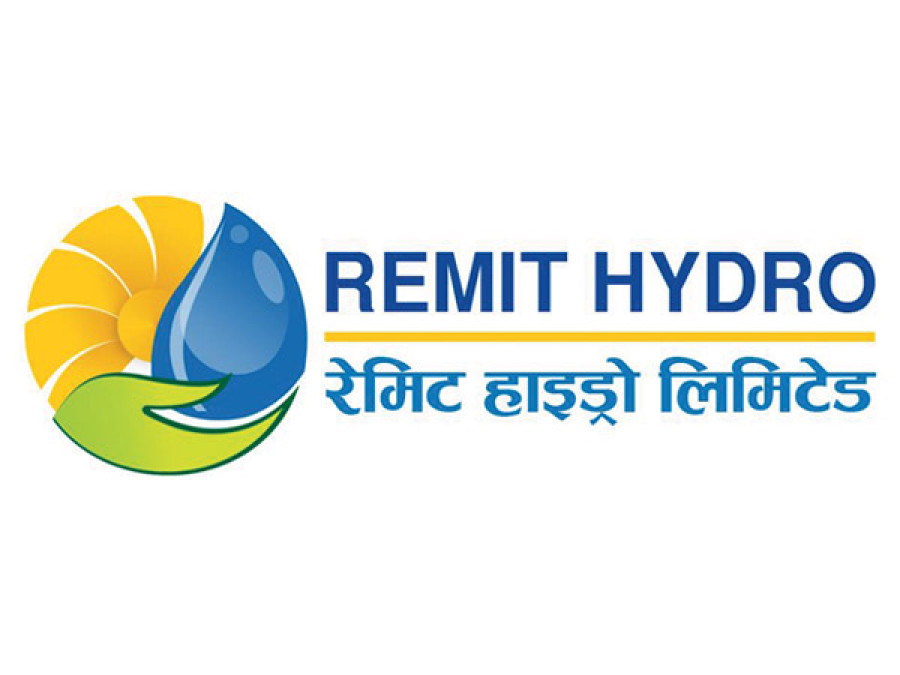
Bibek Subedi
Department of Electricity Development (DoED) has decided to award development licences of two mid-sized run-of-the-river hydropower projects to Remit Hydro Limited (RHL), a wholly-owned subsidiary of Hydroelectricity Investment and Development Company Limited (HIDCL).
The department within a week will recommend the Ministry of Energy that RHL be issued the licences for the development of 71.5MW Ghunsa Khola Hydropower Project and 53.7MW
Sinbuwa Khola Hydropower Project, according to DoED Director General Sameer Ratna Shakya.
State-owned HIDCL had applied for the license last year, but the DoED had asked the former to prove Remit Hydro’s financial ability first. “When we applied for the license, the authorised capital of our subsidiary was Rs500 million and paid-up capital was Rs 50 million,” said HIDCL CEO Deepak Rauniyar. “But we recently increased the paid-up capital by more than fivefold to Rs255 million to prove our worth as asked by DoED.” Both the projects are located in Taplejung district. Feasibility study on Ghunsa has already been completed, while the study on Simbuwa is yet to be done.
Rauniyar said RHL will start preparing detailed project report (DPR) once the ministry approves the licence. “We have carried out preliminary discussion with some banks and financial institutions of the country and some of them are positive about financing the projects,” said Rauniyar.
The combined estimated cost for the projects stands at Rs19 billion and the company has said the entire funds will be raised domestically. RHL plans to hold a 51 percent stake in each project, while 24 percent equity investment will come from migrant workers, 10 percent from the locals, and the remaining 15 percent will be raised through initial public offering.
With an objective to promote gender inclusion and to empower women, 50 percent of the shares floated through the IPO and those issued for the locals will be reserved for women. To ensure adequate funds come from the migrant workers, RHL has planned a scheme under which the workers can buy project shares on the basis of equal monthly instalments.
RHL was established to tap the enormous remittance money coming into Nepal every year. The objective of the company is to develop midsized hydropower projects, primarily by utilising remittance as a source of financing and giving migrant workers an opportunity to get involved in development.




 16.12°C Kathmandu
16.12°C Kathmandu






